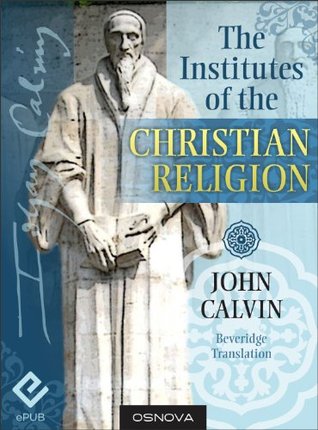The whole entire essence must therefore be common to the Father and the Son; and if so, in respect of essence there is no distinction between them. If they reply that the Father, while essentiating, still remains the only God, being the possessor of the essence, then Christ will be a figurative God, one in name or semblance only, and not in reality, because no property can be more peculiar to God than essence, according to the words, “I Am hath sent me unto you,” (Ex. 3:4).
Welcome back. Just a moment while we sign you in to your Goodreads account.


